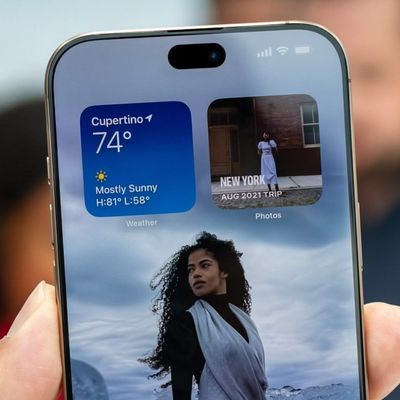 Australia is set to push for greater international powers to thwart the use of encrypted messaging services by terrorists and criminals, according to reports on Sunday (via Reuters).
Australia is set to push for greater international powers to thwart the use of encrypted messaging services by terrorists and criminals, according to reports on Sunday (via Reuters).
The topic will be addressed this week at a meeting of officials from the "Five Eyes" intelligence sharing network, which includes the U.S., the U.K, Canada, Australia, and New Zealand.
Australia claimed the increasing use of strong encryption on smartphones and other devices was hindering law enforcement's capacity to gather and act on intelligence, and said it wants tech companies to do much more to give intelligence and law enforcement agencies access to encrypted communications.
Security experts and privacy groups regularly argue that any such methods would simply weaken overall security for everyone.
"I will raise the need to address ongoing challenges posed by terrorists and criminals using encryption," Australian Attorney General Senator Brandis said in a joint statement.
"These discussions will focus on the need to cooperate with service providers to ensure reasonable assistance is provided to law enforcement and security agencies."
The announcement followed the U.K. government's recent statement of intent to pressure technology companies to do more to put an end to the "safe spaces" that the internet offers extremists. The country has also called for measures to "regulate cyberspace", following terror attacks in the country.
In related news, a leaked draft technical paper prepared by the U.K. government states that technology companies would be required to remove encryption from private communications and provide the raw data "in an intelligible form" without "electronic protection". However, it's not clear if the Conservatives still intend to pursue these powers after recent elections left the party with a minority government and a diminished mandate.
Last year Apple refused requests from the FBI to break the security of its mobile software, following the recovery of an iPhone used by the San Bernardino shooter. Apple argued the FBI's request would set a "dangerous precedent" with serious implications for the future of smartphone encryption. The dispute ended after the government found an alternate way to access the data on the iPhone through the help of professional hackers.
Last week, the European Union published draft proposals that would enforce end-to-end encryption on all digital communications and forbid backdoors that enable law enforcement to access private message data. If ratified, the law would put it at odds with both the U.S. and U.K. intelligence communities.
Note: Due to the political nature of the discussion regarding this topic, the discussion thread is located in our Politics, Religion, Social Issues forum. All forum members and site visitors are welcome to read and follow the thread, but posting is limited to forum members with at least 100 posts.





















Top Rated Comments
I don't know what Canadas and New Zealand's government is thinking about at this time.
I hope they join the EU side.
'hey government people with five eyes, you shouldn't keep trying to break encryption for EVERYONE just to attempt to catch a relatively tiny number of bad guys - and likely fail anyway! You may now thank me for my reasonable assistance. You're welcome.'